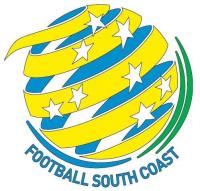WINTER SPORTS & COLD RELATED INJURIES
Snow sports are a popular choice of recreation, but the conditions of alpine environments should be seriously considered and prepared for to minimise the risk of injury.
Common cold-related injuries
Blisters - badly fitting shoes or the friction of wet socks can cause blisters on the toes, feet and heels.
Sprains and strains - cold muscles and connective tissue are more prone to injury. Sports such as skiing and skating place particular demands on the knees, ankles and feet.
Sunburn - what many people think of as ‘windburn’ is actually sunburn. Ultraviolet radiation is still present in cold and cloudy conditions.
Snow blindness - this is sunburn of the cornea of the eye, caused by ultraviolet radiation. Symptoms include painful, watery eyes and temporary blurring of vision.
Frostbite - occurs when the tissues of the skin freeze. Ice crystals in and around skin cells block the movement of blood through the fine blood vessels (capillaries), which means the skin is deprived of oxygen and nutrients and dies.
Hypothermia - the core temperature of the average human body is around 37°C. Hypothermia occurs when the body’s temperature falls below 35°C. Symptoms include shivering, drowsiness and lack of coordination. The person may lie down to rest, lapse into unconsciousness and, if not quickly rescued, will die.
General safety suggestions:
- Never participate in winter sports alone. With a partner (or two), you can use the 'buddy system', for example to check each other for signs of hypothermia.
- Be aware that you are exposed to UV radiation even on cold and cloudy days. Apply broad spectrum 30+ sunscreen to all areas of exposed skin. Reapply regularly.
- Drink plenty of water before, during and after sport.
- Don't drink alcohol. While an alcoholic drink seems to warm you up, it actually narrows your blood vessels, particularly those of the hands, which can increase your risk of hypothermia.
- Don’t push yourself until you are exhausted. Rest at regular intervals to avoid fatigue-related injuries.
- Cold muscles, tendons and ligaments are vulnerable to injury. Warm up thoroughly before playing your chosen winter sport. Remember to take cold temperatures into account and spend more time warming up than usual.
- Know your ability and always stay in control and be able to stop and avoid other people or objects. It is your responsibility to stay in control on the ground and in the air.
- Take lessons from qualified professional instructors to learn and progress.
- As you proceed downhill or overtake another person, you must avoid the people below and beside you.
- Do not stop where you obstruct a trail or run or are not visible from above.
- When entering a trail or run or starting off downhill, look uphill ad give way to others.
- Observe and obey all rules, signs and warnings. Keep off closed trails or runs and out of closed areas.
- Before using any lift, you must have the knowledge and ability to load, ride and unload safely.
- Do not ski, snowboard, ride a lift or undertake any other alpine activity if your ability is impaired by drugs or alcohol.
- If you are involved in, or witness an accident, alert Ski Patrol, remain at the scene and identify yourself to Ski Patrol.
- In the event of a fall do not attempt to get up too soon while you are still falling or sliding - wait until you stop.
When using terrain parks, demonstrate appropriate etiquette. 'Smart Style' is a set of guidelines designed in America by Burton Snowboards and the National Ski Areas Association. The simple messages are:
Look before you leap - obey signs, scope around jumps first, use a spotter when necessary
Easy style it - know your limits and stay in control
Respect gets respect - wait your turn and call your start, only one person at a time on each feature, clear the landing quickly.
Click below for a print version of the flyer
WINTER SPORTS AND COLD RELATED INJURIES FLYER










Comments
Comment Guidelines: The SportsTG Network is made up of players, families and passionate sports followers like you who have a strong opinion about sport. That's great - we want you to have your say and share your thoughts with the world. However, we have a few rules that you must follow to keep it fun for all. Please don't be rude, abusive, swear or vilify others. Apart from some pretty serious sport sanctions, we also can ban you and report you if things get out of hand. So play fair and have fun, and thanks for your contribution.